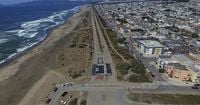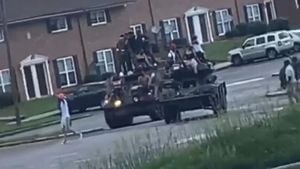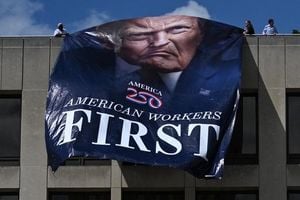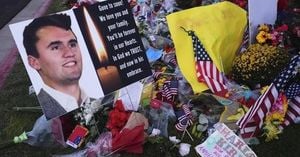On a windswept stretch of San Francisco’s Pacific Coast, a two-mile ribbon of pavement once known as the Great Highway has become the unlikely epicenter of a fierce local political battle. What began as a pandemic-era experiment—closing the busy four-lane thoroughfare to cars and turning it into a sanctuary for walkers, cyclists, and families—has now evolved into a full-blown recall election that could reshape the city’s political landscape.
District voters in the Sunset, a quiet residential neighborhood on the city’s west side with a significant Chinese population, are heading to the polls on September 16, 2025, to decide whether to recall their supervisor, Joel Engardio. The stakes, as many see it, go beyond one person’s political fate. The recall marks San Francisco’s third such vote in just four years, signaling an electorate that’s restless, divided, and unafraid to demand change from its leaders.
According to the Associated Press, the origins of this showdown date back to the COVID-19 pandemic, when city officials closed the Great Highway to automobile traffic. The move was initially celebrated by many; with cars gone, the oceanfront became a rare refuge for residents seeking exercise and social connection during lockdowns. People jogged, biked, and strolled under open skies, with the sound of crashing waves replacing the usual hum of engines. The new park, dubbed Sunset Dunes, quickly became a beloved destination for many San Franciscans.
But as life returned to normal—schools and offices reopening, commutes resuming—resentment simmered among Sunset residents who had long relied on the highway for daily transportation. For them, the closure meant longer drives, congested side streets, and a sense of being cut off from the rest of the city. Some blamed Engardio, who helped place a measure on the November 2024 ballot to permanently ban cars from the stretch, turning it into a park for good.
Measure K, as the initiative was known, passed citywide but notably failed in the Sunset District itself. That defeat set the stage for a recall campaign, with petitioners gathering 10,500 valid signatures by May 2025—enough to force Tuesday’s vote. The recall, as AP reports, is being driven by many of the same activists who previously ousted three liberal school board members in February 2022 and then progressive District Attorney Chesa Boudin just months later. It’s a pattern that underscores a city still in flux, with an electorate that’s both cranky and, some would say, emboldened.
Engardio, a crime victims’ advocate who supported those earlier recalls, doesn’t shy away from the high stakes. “This recall is really about the future of our city,” he told the Associated Press. “Do we want to be a city that just preserves itself in amber and goes back in time? Or do we want to be a city that innovates, thinks ahead, is forward-looking and welcomes new people?”
His critics, however, accuse him of betraying the district. They say Engardio once supported a compromise that would have kept the highway open to cars on weekdays and closed it only on weekends. When he shifted to backing a permanent closure, they felt their concerns about quality of life and traffic safety were ignored. “He failed to listen to us,” one recall supporter told AP, echoing a sentiment that’s become common in neighborhood conversations.
Supporters of Engardio counter that he’s always been clear about his preference for an oceanside park. He says he only backed the earlier compromise because it was the best option available at the time, with a competing ballot measure threatening to fully reopen the highway to cars. His backers also argue that the city has taken steps to address traffic issues in the district and that the oceanfront belongs to all San Franciscans, not just the immediate neighbors.
The recall campaign itself has become a microcosm of San Francisco’s broader political tensions. On one side, volunteers like Heather Davies go door to door, handing out recall fliers and encouraging neighbors to vote yes. Davies, as quoted by AP, sees the effort as a grassroots pushback against wealthy donors pouring money into the anti-recall side. “We don’t have the levers to pull in democracy like these guys. They can flood the market with social media, and we can’t afford to do that,” she said, pointing to the $375,000 combined contributions from tech entrepreneurs Jeremy Stoppelman (Yelp co-founder) and Chris Larsen (Ripple cryptocurrency co-founder) to the anti-recall campaign. In total, the anti-recall side has raised more than $800,000, dwarfing the pro-recall campaign’s $250,000.
Yet there’s no shortage of voices supporting Engardio. Alex Wong, a local father of two, told AP that he values the supervisor’s focus on family-friendly policies, such as building more housing and improving schools. “The recall itself is centered around a road closure that the rest of the city voted on in support. It may not be popular among my neighbors, but I don't think that in itself is worthy enough of a recall,” Wong said. “The Sunset is better than this.”
All of this is unfolding against the backdrop of a much larger debate about San Francisco’s future. Mayor Daniel Lurie, himself a moderate Democrat like Engardio, is pushing a controversial plan to build taller, denser buildings with tens of thousands of new housing units. The city’s dire need for housing has made this proposal a political flashpoint, especially in neighborhoods like the Sunset, where resistance to change runs deep. Engardio has thrown his support behind the mayor’s plan, even as it faces fierce opposition from many of his own constituents.
Political observers say the recall is about more than one supervisor or one park. Jason McDaniel, a political science professor at San Francisco State University, told AP, “Anybody that thought that the recalls were just a rejection of progressive politics is wrong.” He believes the trend is sending a message to other city politicians: “It’s going to make them less likely to embrace difficult positions.”
For now, the fate of Sunset Dunes—and the political future of Joel Engardio—hangs in the balance. Whether voters choose to recall him or not, the election is a vivid reminder of how even the most local of issues can spark citywide debates about identity, change, and who gets to shape the future. As San Francisco stands at a crossroads, the outcome of this recall may well set the tone for the city’s next chapter.




